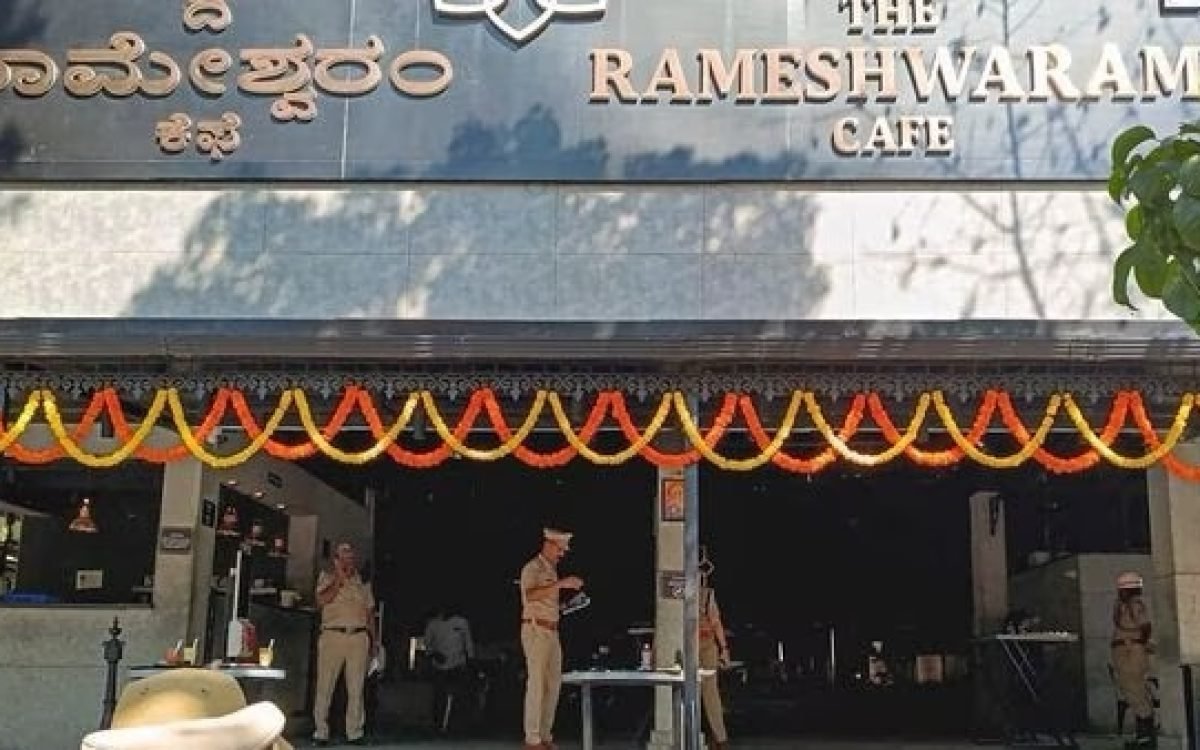The recent explosion at Bengaluru’s Rameshwaram Cafe sent shockwaves through the bustling city, leaving behind a trail of questions, concerns, and a heightened sense of vulnerability. As the café prepares to reopen its doors to the public on March 9, amidst the debris and aftermath, the incident continues to reverberate across the nation.
On March 1, a low-intensity IED explosion rocked the serene ambiance of Rameshwaram Cafe, shattering the tranquility and inflicting injuries on more than nine individuals. The incident, reminiscent of the growing specter of violence in urban spaces, sparked a frenzied investigation led by both local authorities and the National Investigation Agency (NIA).
The NIA’s swift response underscored the gravity of the situation, as it released a photograph of the prime suspect, offering a substantial cash reward of ₹10 lakh for any leads leading to his apprehension. The hunt for the perpetrator intensifies, with each passing moment revealing new clues and revelations.
Amidst the fervent pursuit of justice, recent developments have shed light on the suspect’s daring escapade captured in the latest CCTV footage. The image of the suspect, devoid of disguise, evokes a chilling reminder of the brazenness with which acts of terrorism unfold in our midst. The indelible image serves as a stark testament to the need for heightened vigilance and collaborative efforts in combating such threats.
Initial inquiries suggest that the assailant, armed with a homemade bomb concealed within a nondescript bag, strategically placed it within the café premises before fleeing the scene. The motive behind the attack remains shrouded in ambiguity, fueling speculations and conjectures within the corridors of law enforcement agencies.
As the investigation progresses, the political landscape of Karnataka simmers with dissent and accusations, with the opposition lambasting the government’s perceived inadequacies in safeguarding public security. The incident has reignited debates surrounding counter-terrorism measures and the efficacy of governance in addressing burgeoning threats.
In the aftermath of tragedy, solidarity emerges as a beacon of hope, uniting communities in resilience and resolve. The impending reopening of Rameshwaram Cafe symbolizes a collective defiance against fear and adversity, a testament to the unwavering spirit of the city.
As Bengaluru braces itself for the inevitable reopening of its beloved café on March 9, the scars of the past linger, serving as poignant reminders of the fragility of life and the imperative of collective vigilance. In the face of adversity, the resilience of the human spirit prevails, ushering in a renewed sense of purpose and solidarity in the pursuit of peace and justice.









